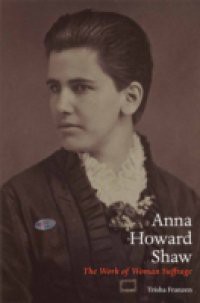Acknowledged by her contemporaries as the most outstanding woman suffrage orator of her time, Anna Howard Shaw (1847-1919) has nonetheless received minimal attention from historians. Trisha Franzen rectifies that oversight with this first scholarly biography of Shaw, a study that illuminates Shaw's oft-ignored early years and challenges existing scholarship on her time in the suffrage movement. An immigrant from a poor family, Shaw grew up in an economic reality that encouraged the adoption of non-traditional gender roles. Challenging traditional gender boundaries throughout her life, she put herself through college, worked as an ordained minister and a doctor, and built a tightly-knit family with her secretary and longtime companion Lucy E. Anthony. Drawing on unprecedented research, Franzen shows how these circumstances and choices both impacted Shaw's role in the woman suffrage movement and set her apart from her native-born, middle- and upper-class colleagues. Franzen also rehabilitates Shaw's years as president of the National American Woman Suffrage Association, arguing that Shaw's much-belittled tenure actually marked a renaissance of both NAWSA and the suffrage movement as a whole. Anna Howard Shaw: The Work of Woman Suffrage presents a clear and compelling portrait of a woman whose significance has too long been misinterpreted and misunderstood.

